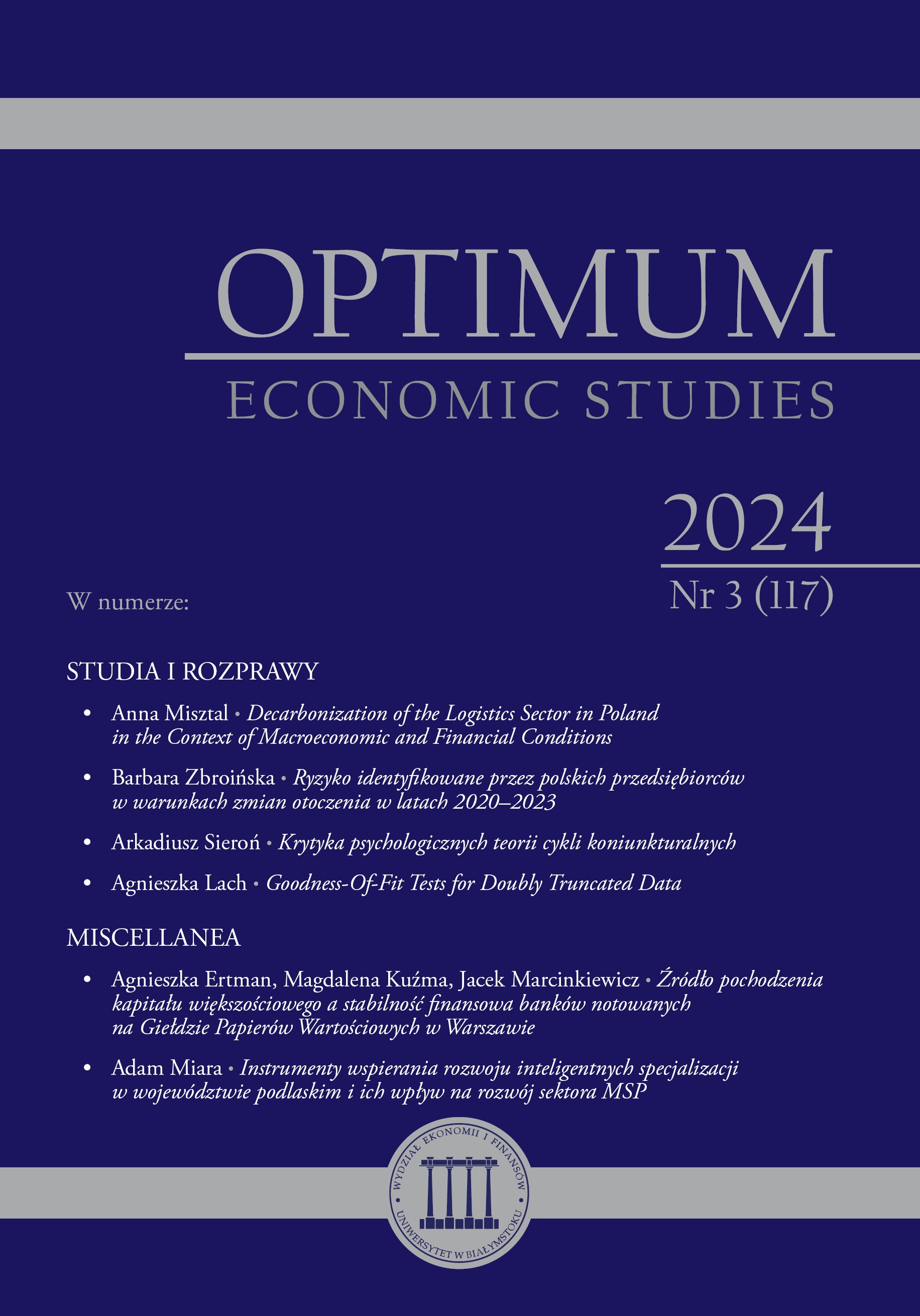KRYTYKA PSYCHOLOGICZNYCH TEORII
CYKLI KONIUNKTURALNYCH
PSYCHOLOGICAL THEORIES OF BUSINESS CYCLE: A CRITIQUE
Author(s): Arkadiusz SierońSubject(s): Business Economy / Management, Social psychology and group interaction
Published by: Wydawnictwo Uniwersytetu w Białymstoku
Keywords: animal spirits; business cycle; psychological theories of business cycle; theory of business cycle;
Summary/Abstract: Purpose – The purpose of this article is to examine psychological theories of businesscycle.Research methods – The article is theoretical in nature; the methods of critical literaturereview and deductive reasoning were used.Results – The paper points out a number of problems faced by such theories: 1) theyviolate the proper methodology of economics, which postulates rationality of indivi dualsand stable preferences; 2) they ignore important economic factors (profit and loss mecha-nism, signaling and coordinating functions of prices, the effect of incentives on behavior,economic calculation, etc.); 3) instead, they appeal to psychological pheno mena, butdo not adequately explain their genesis, course and why they should result in businesscycles; 4) they assume a causal relationship from mental states to objective market reality,introducing changes in mental states as diabolus ex machina; 5) they do not adequatelyexplain all features of business cycles; 6) they ignore the concept of the invisible handand systemic rationality; 7) they constitute ex post narratives about particular businesscycles rather than general theories that allow for predictions; 8) they assume a dubiousview of human nature (that people are impulsive and reactive, and that this nature isdifferent depending whether an individual works within the private or the public sector).Originality / value / implications / recommendations – These problems suggest that psychologicaltheories of business cycle should be rejected by economists.
Journal: Optimum. Economic Studies
- Issue Year: 117/2024
- Issue No: 3
- Page Range: 38-59
- Page Count: 22
- Language: Polish

